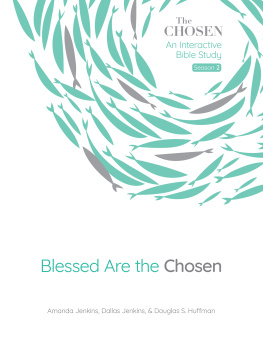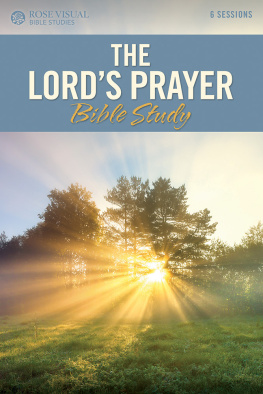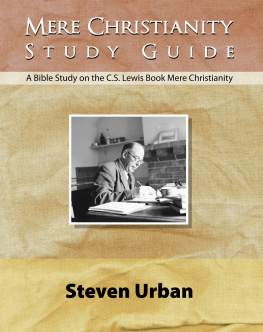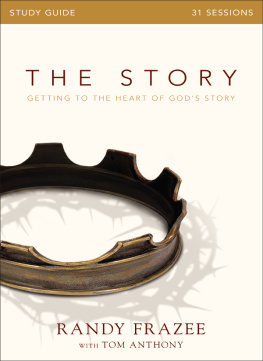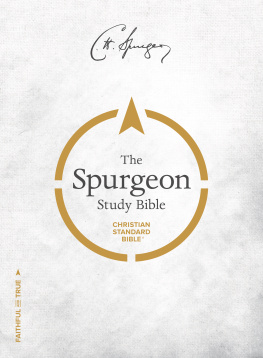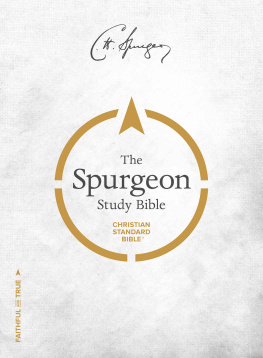Colorado Springs, CO 80918 U.S.A.
The graphic circle C logo is a registered trademark of David C Cook.
All rights reserved. Except for brief excerpts for review purposes,
without written permission from the publisher.
Unless otherwise noted, all Scripture quotations are taken from the ESV Bible (The Holy Bible, English Standard Version), copyright 2001 by Crossway, a publishing ministry of Good News Publishers. Used by permission. All rights reserved. Scripture quotations marked NIV are taken from the Holy Bible, New International Version, NIV. Copyright 1973, 2011 by Biblica, Inc. Used by permission of Zondervan. All rights reserved worldwide. www.zondervan.com. The NIV and New International Version are trademarks registered in the United States Patent and Trademark Office by Biblica, Inc. The authors have added italic, bold, underline, and larger-type treatments to Scripture quotations for emphasis.
Introduction
THE SERMON ON THE MOUNT
Seeing the crowds, he [Jesus] went up on the mountain, and when he sat down, his disciples came to him. And he opened his mouth and taught them, saying:
Blessed are the poor in spirit, for theirs is the kingdom of heaven.
Blessed are those who mourn, for they shall be comforted.
Blessed are the meek, for they shall inherit the earth.
Blessed are those who hunger and thirst for righteousness,
for they shall be satisfied.
Blessed are the merciful, for they shall receive mercy.
Blessed are the pure in heart, for they shall see God.
Blessed are the peacemakers, for they shall be called sons of God.
Blessed are those who are persecuted for righteousness sake,
for theirs is the kingdom of heaven.
Blessed are you when others revile you and persecute you and utter all kinds of evil against you falsely on my account. Rejoice and be glad, for your reward is great in heaven, for so they persecuted the prophets who were before you.
Matthew 5:112
Blessed is both a familiar and unfamiliar word. Christians tend to use it in place of the word lucky, lest anyone think we think good things happen by chance. We also bless this food to our bodies before eating, mind our manners with a bless you after sneezing, give our blessing to things we like and withhold it from things we dont, and believe our judgment is subtle when we bless his heartespecially if we use a southern drawl.
Blest? Or bless-ED??
But in Matthew 5, Jesus used the word nine times , which begs the question: What does the word blessed really mean? And while were at it, is it pronounced with one syllable or two?
The first-century Greek word for blessed was makrios (), and its used 50 times in the New Testament.
Of course, the real issue isnt how to pronounce the twenty-first-century English word, but instead how the first-century word was defined. While most English translations of Matthew 5 use the word blessed, a few use the word happy. And indeed, happiness is included in some New Testament contexts (as in, if you do this, youll be happy, like in Matt. 24:46, Luke 11:28, and Deut. 28:114)but not all. In the Sermon on the Mount, the blessed statements are not do this and be happy life hacks; they arent expressions of conditional expectation. Rather, they are declarations of what already is for the those who follow Jesus. Perhaps each sentence could just as easily begin with congratulations.
Conditional expectation:
things we have to do in order to get something in return.
Congratulations to those who are poor in spirit, because theirs is the kingdom of heaven.
Congratulations to those who mourn, because they shall be comforted.
Congratulations to those who are meek, because they shall inherit the earth.
Congratulations and so on and so forth because Gods favor is upon you.
And now were getting somewhere because as were going to see in the coming pages, Gods favor is better than happiness, contrary to the pursue happiness no matter the cost culture we live in. Happiness, by definition, is conditional, which means its also temporary and most often fleeting. On the contrary, the blessings Jesus spoke ofusually called the Beatitudespoint to a fuller, more significant kind of human flourishing. Not in the material sense like those who seem to have it all, but in the faith-affirming, peace-abiding, future-securing sense our souls truly long for.
Beatitudes:
the blessings listed by Jesus in the Sermon on the Mount.
So who gets to experience Gods favor? Well, only those who follow Jesus.
In our season 1 Bible study called What Does It Mean to Be Chosen? we focused on Isaiah 43, the Old Testament anticipation of a coming Messiah, and what the arrival of Jesus meant and still means for His followers. Specifically, we explored what it means to be called and rescued by Jesus, to rest in His presence, to be cherished and protected, to change course in order to follow where He leads, to testify of His kingship, to be cleansed of sin and made new, and to be established and carried along the way.
Pun not intended
but also not deleted.
And being carried is right where this new Bible study picks up.
Just as season 2 of The Chosen depicts more of Jesuss way of living and being and teaching, so does the Sermon on the Mount. In every word spoken that day, we see the character, power, and promises of the One who carries us. Once we belong to Him, were not only given a new identity, were ushered into a new reality. One that is sure, imminent, and permanent. And so
We have hope no matter our circumstances.
We have assurances and riches and resources no matter our circumstances.
We are blessed no matter our circumstances because Gods favor is upon us.
That said, this new reality is not automatically seen or understood by spiritually untrained eyes. And wrapping our heads around Gods favorunderstanding it, accepting it in spite of who we know our sinful selves to be, prioritizing it over other things, and allowing it to fundamentally change the way we see and experience the worldbrings with it some intrinsic hang-ups.
For Bible Nerds
(like us)
Who Want
to Know
Two of the four Gospels in the New Testament have summaries of the Sermon on the Mount: the Gospel of Matthew and the Gospel of Luke. Matthew has the longer summary (three chapters totaling 111 verses in Matthew 57), and Luke has the shorter summary (33 verses in Luke 6:1749). While we will make the occasional reference to Lukes account (four blessed statements in Luke 6:2023 and four corresponding woe statements in Luke 6:2426), this study will primarily focus on Matthews lengthier list of nine blessed statements.
Incidentally, is anyone surprised that Matthews account of the sermon is the longer one?
Yeah, neither are we.

